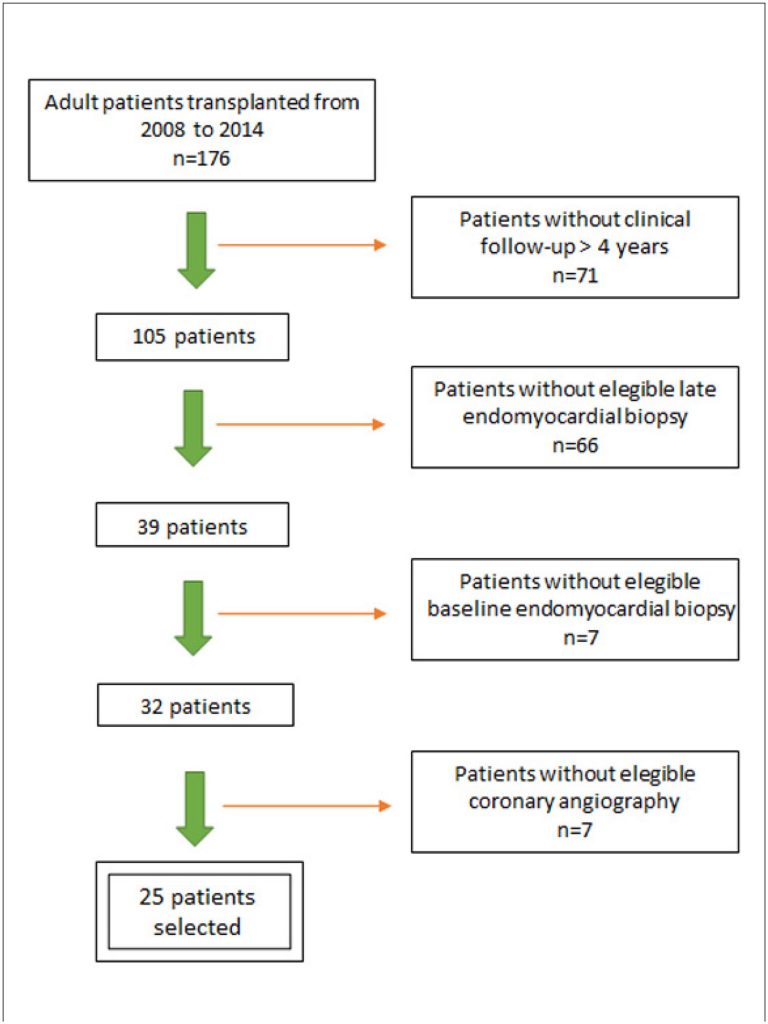Arq. Bras. Cardiol. 2023; 120(3): e20220313
Cumulative Disorder of Myocardial Lipofuscin after Long-Term Heart Transplantation: A Study Based on Endomyocardial Biopsies
Introduction
Lipofuscin is a yellowish-brown, non-degradable cytoplasmic pigment composed of highly oxidized proteins, lipids, and metals. Lipofuscin accumulates over time in perennial post-mitotic cells such as cardiomyocytes and is also called “age pigment”.–
Heart transplantation is an established treatment for patients with severe heart failure refractory to other forms of treatment. Its major long-term limitation is the development of cardiac allograft vasculopathy (CAV), which is relatively difficult to diagnose and for which few effective treatment options exist.6,7 In this context, it is worth mentioning a previous study relating the amount of lipofuscin in the myocardium of heart transplant patients to the development of CAV.
[…]
Keywords: Endomyocardial Biopsy; Heart Transplantation; Lipofuscin
2,288

